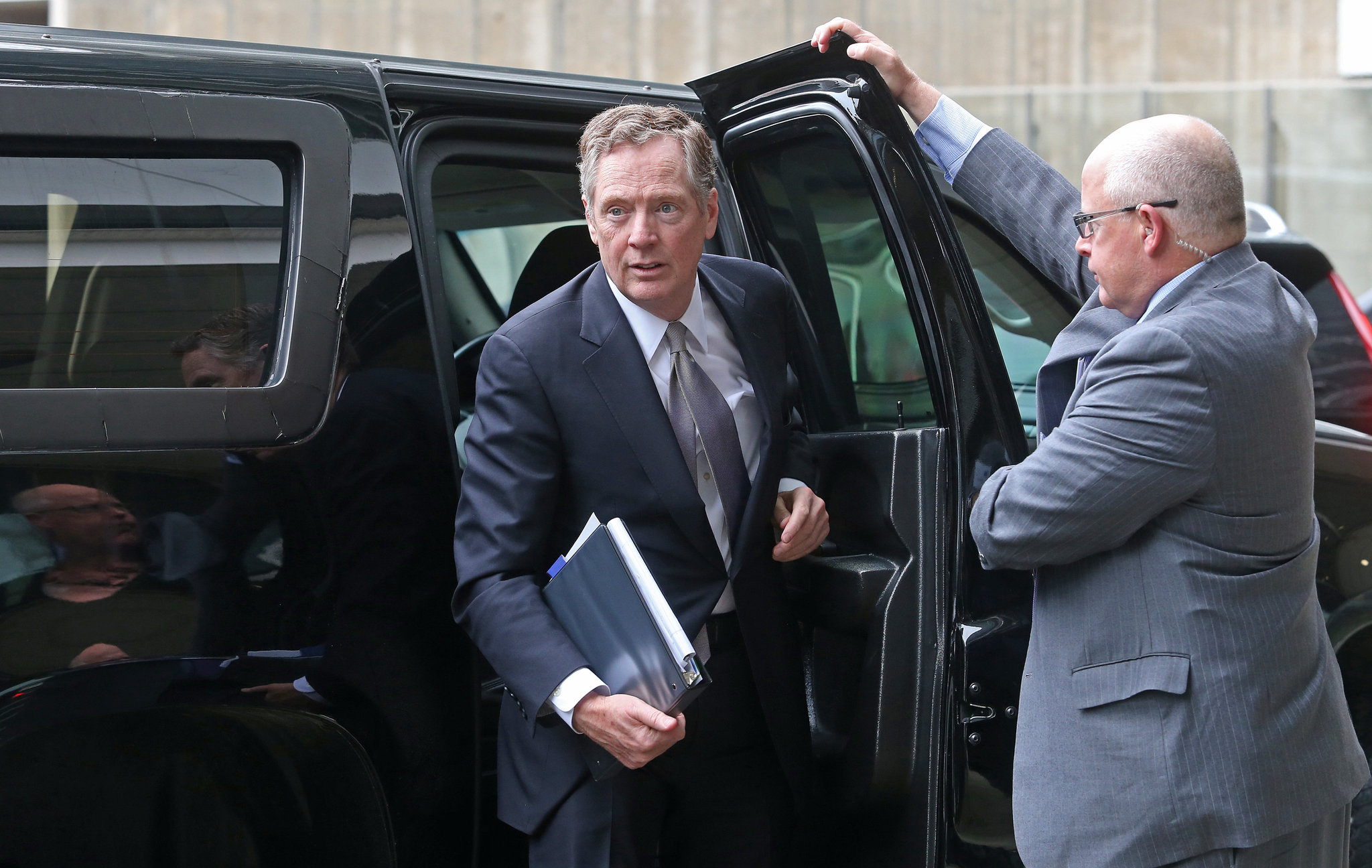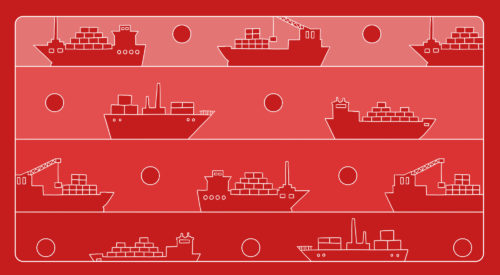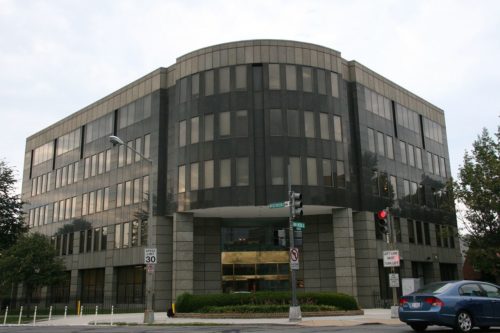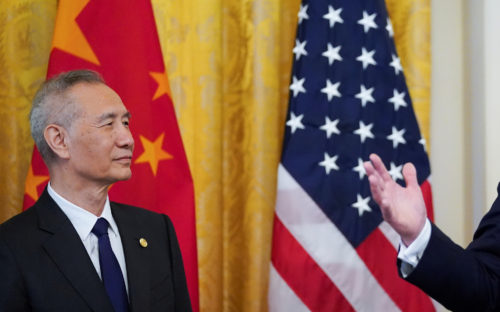Trade war, day 181: Lighthizer may push for more tariffs

There is not much news in the U.S.-China trade war since last Friday, when we highlighted for Access members (paywall) that Foxconn may be moving a large amount of iPhone production to India and Vietnam. But two insightful pieces on Robert Lighthizer, the U.S. Trade Representative leading negotiations, have been published and are worth a read.
- “Lighthizer remains deeply skeptical of Beijing and has warned Mr. Trump that the United States may need to exert more pressure through additional tariffs in order to win true concessions,” the New York Times reports (porous paywall).
- “Lighthizer wants to limit China’s influence, even if he has to break the American-made economic order to do it,” the Atlantic says in an in-depth profile of his contrarian trade law career stretching back to the 1980s.
Both pieces indicate that Lighthizer is enjoying immense influence in the Trump administration at the moment. “Lighthizer is still riding a NAFTA high within the administration,” the Atlantic writes, referring to the North American Free Trade Agreement, recently renegotiated as the United States–Mexico–Canada Agreement, though not yet approved by the U.S. Congress. The Times adds that Lighthizer has a waterfront condo in Palm Beach, Florida, very near Trump’s Mar-a-Lago resort, so he accompanies the president on his frequent wintertime golfing retreats.
Another piece of significant U.S.-China news also comes from the New York Times:
- All of the “more than 20” American cultural centers established at Chinese universities in the past decade are now closed, after interference by Chinese authorities, the Times reports (porous paywall).
- “From January 2016 to April 2017, there were 153 instances of Chinese thwarting the work of the American public affairs officials, including with the centers,” according to a State Department inspector general report. Former ambassador Max Baucus and current ambassador Terry Branstad were both denied access to American cultural centers at Chinese universities.
- Meanwhile, in the U.S., some Chinese-government-funded Confucius Institutes have been closed by universities in Florida, North Carolina, Michigan, and other states, though dozens remain open. Outside of the U.S., Confucius Institutes continue to rapidly spread.
More links related to U.S.-China relations, including the detentions of Canadians and indicators in the Chinese economy:
- Canadian detainees and reactions
Stephen Dziedzic on Twitter: “A host of Australian scholars…say the Aust Govt should break its silence and call for China to release Canadian citizens Michael Spavor and Michael Kovrig”
Rory Medcalf on Twitter: “I intended to avoid twitter til 2019, but China’s blatant hostage-taking and the Australian Government’s awkward silence cannot be ignored. I join many other Australian scholars in calling for our government to show solidarity with Canada and speak out.”
Activity on social media of Canadian detained in China raises questions / Reuters
“Michael Spavor was shown as being ‘active’ on Viber, an instant messaging app blocked in China, as recently as early on Wednesday, a screenshot of his online status viewed by Reuters showed.”
Why China is first class for SA teachers, warts and all / Times LIVE
“South Africans are still queueing up to teach English in China despite several incidents of teachers being detained and deported for visa-related violations.” - Foreign investment and insurance market opening
Qatar Airways takes 5 per cent stake in China Southern Airlines in sign that Beijing is encouraging more foreign investment / SCMP
Western insurers rush to seize on China market opening / FT (paywall)
“France’s Axa has bought the 50 per cent of Chinese joint venture Axa Tianping that it did not already own, in a deal that was flagged as an industry first in China. Germany’s Allianz, meanwhile, has won approval to set up a wholly owned holding company in the country…Other foreign groups have expressed interest in raising their stakes.” - Economic slowdown
Baidu CEO warns that ‘winter is coming’ amid slowing growth, economic restructuring / SCMP
China birth numbers expected to fall to lowest level since 2000, creating new economic and social challenges / SCMP
China plans 6,800km of new rail track in 2019 amid infrastructure push / Reuters
China Is Getting Bubbles, Not Growth, for New Year’s / WSJ (paywall)
“The bad news from the official purchasing managers index was confirmed Wednesday by the privately compiled Caixin index, which further showed new orders in December down for the first time in 2½ years.
It’s a sign that nine months of monetary easing by the central bank has failed to boost lending to the real economy, though it has succeeded in pushing housing and government-bond prices into bubbly territory.”
Empty Homes and Protests: China’s Property Market Strains the World / NYT (porous paywall)
“Sales in terms of gross floor area on the market have dropped sharply since September. The share of apartments in new developments that are being sold has plunged since the summer. The number of failed land auctions has doubled this year, indicating that property developers are unwilling or unable to buy land for new developments…Officials tried various measures to take steam out of the market last year and are now reversing some of them.” - Commentary
Opinion: Xi Jinping’s China is ignoring the role the US, and others, played in its rise to economic glory / SCMP
Chi Wang (Wáng Jì 王冀), the former head of the Chinese section of the US Library of Congress, writes, “China did not rise on its own. It relied on the fair access to global markets that it now denies other countries.”
Jimmy Carter: How to repair the U.S.-China relationship — and prevent a modern Cold War / Washington Post - U.S. military all about “China, China, China”
Remember – ‘China, China, China,’ new acting US defence secretary says / Reuters
“Acting U.S. Defence Secretary Patrick Shanahan told civilian leaders of the U.S. military on Wednesday to focus on ‘China, China, China,’ even as America fights militants in Syria and Afghanistan, a U.S. defence official said.”
Previously in The China Project’s trade war coverage:
Trade war, day 175: Qualitative measures and detained Canadians






